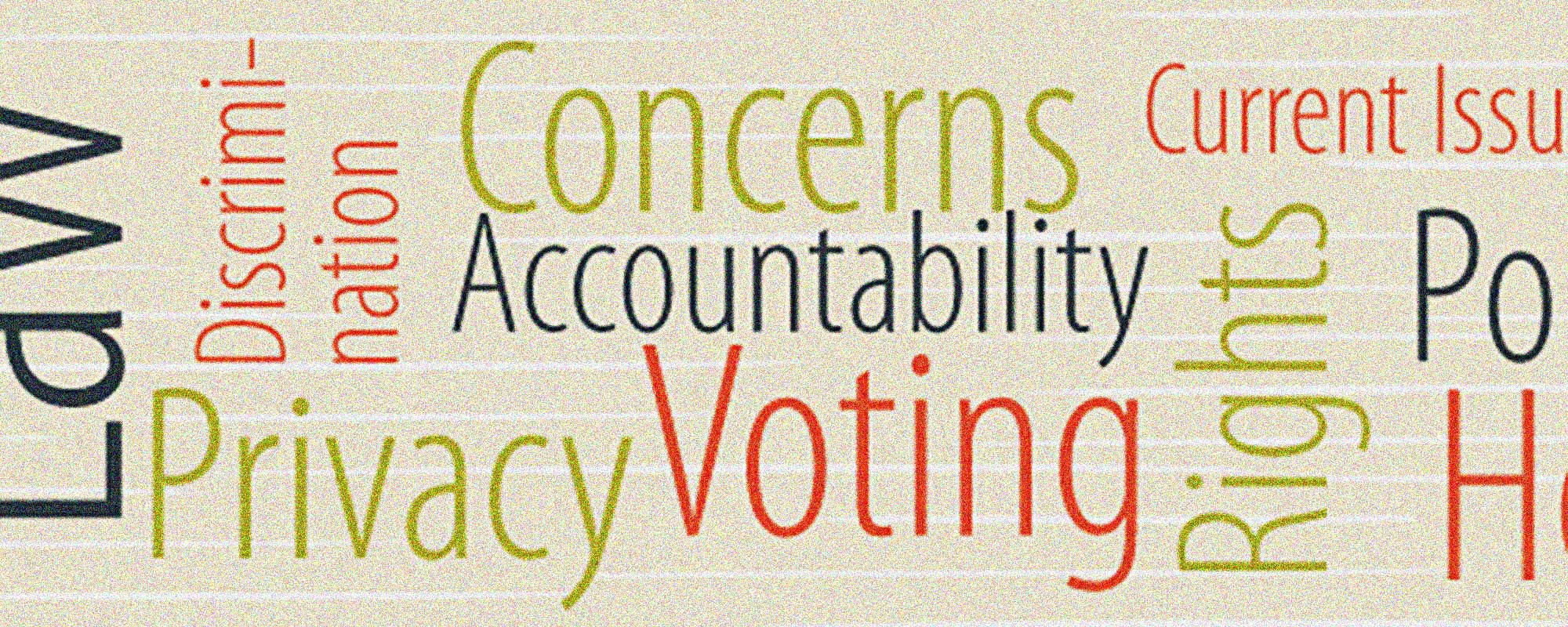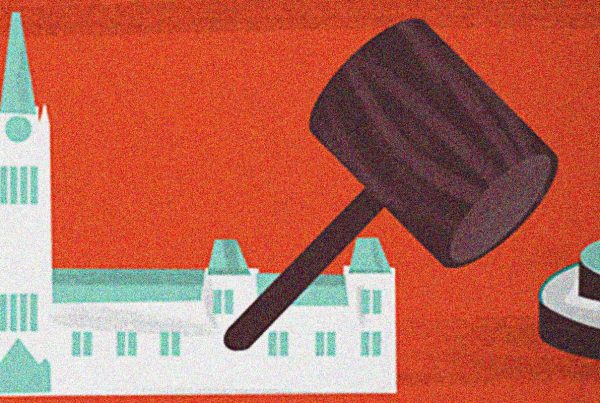Like all content on this website, this document is not legal advice and is provided solely for the purpose of public information and education. If you are facing a legal issue or have a question about your specific situation, you should consider seeking independent legal advice. You can find a list of legal clinics and other resources to help you here.
The CCLA is a national organization that works to protect and promote fundamental human rights and civil liberties. To fulfill this mandate, the CCLA focuses on litigation, law reform, advocacy and public education. Our organization is not a legal clinic. As such, we are typically not in a position to provide members of the public with legal advice or direct legal representation. However, we do try to provide general legal information and appropriate referrals where possible. For questions about this document, email publicenquiries [at] ccla [dot] org.
Canadian Security Intelligence Service (CSIS): What do you need to know?
For a PDF of this document which includes footnotes and citations of relevant legislative provisions, click here: CSIS Background Information – CCLA.
What does CSIS do?
CSIS is Canada’s spy agency. CSIS collects and analyzes information and security intelligence within Canada and around the world. Its primary function is to advise the Canadian government on national security and threats to the security of Canada. Proposed changes to the law may permit CSIS to “reduce” these same threats to the security of Canada by engaging in disruption techniques.
For CSIS’s purposes, activities that constitute “threats to the security of Canada” include:
espionage against Canada or detrimental to Canada’s interests;
foreign-influenced activity that is detrimental to Canada’s interests and is clandestine or deceptive or involve a threat to any person;
serious violence for the purpose of achieving a political, religious or ideological objective; and
activities that lead to the destruction or overthrow by violence of Canada’s system of government.
Can I be arrested or detained by a CSIS agent?
No, you cannot be arrested by a CSIS agent. They do not have the power to arrest you, as police officers do. However, proposed changes to the law may allow CSIS to detain and interrogate you in order to “reduce” threats to the security of Canada.
Do I have to answer questions asked by a CSIS agent?
No, if you do not want to speak with a CSIS agent, you may decline to answer questions. There is, however, one exception to this rule: a foreign national making an application under the Immigration and Refugee Protection Act must appear for an interview with a CSIS agent and truthfully answer all questions, if requested by an immigration officer. A foreign national appearing for an interview may also have to produce photographic or fingerprint evidence and submit to a medical examination. We strongly advise that you seek legal counsel before speaking with any member of CSIS.
What will happen if I do not answer questions asked by a CSIS agent?
It is difficult to predict exactly what will happen if you do not answer questions asked by a CSIS agent; it will depend on the specific circumstances. However, if you have any interactions with CSIS, you should consider documenting what occurred and seeking independent legal advice.
Does a CSIS agent have to tell me that they work for CSIS?
There is no clear requirement that CSIS agents disclose that they work for CSIS. As CSIS is a spy agency often conducting covert activities, secrecy is inherently required. Moreover, CSIS uses informants to secretly obtain information. These informants clearly do not have to reveal that they are working for CSIS so it stands to reason that CSIS agents obtaining information directly do not have to disclose that they work for CSIS either.
If a police or RCMP officer is with the CSIS agent, can I be arrested or detained? Do I have to answer questions?
If the CSIS agent is accompanied by a police or RCMP officer, the officer still possesses their normal police powers. Thus, you may be arrested or detained by that officer and taken for questioning. In such a case, you have the right to remain silent and not answer any questions. You also have the right to immediately ask to speak to a lawyer.
Can CSIS impact my immigration status or citizenship application in any way?
CSIS may advise a Minister so that they may perform a function under the Citizenship Act or the Immigration and Refugee Protection Act. Thus, the information provided by CSIS may have an impact on your immigration status or citizenship application.
For example, CSIS may provide information that leads the Minister to submit a report opining that you should not be granted citizenship because you will engage in activities that constitute a threat to the security of Canada. This report will be reviewed and could prevent you from being granted citizenship.
Moreover, you will not be granted citizenship or take the oath of citizenship while you are under investigation by CSIS for certain offences under the Crimes Against Humanity and War Crimes Act.
Can CSIS take my cellphone or computer? Can they access my cellphone or computer or monitor or intercept my activities on those devices without my knowledge?
No, unless CSIS has obtained the approval of the Minister of Public Safety and Emergency Preparedness and a warrant issued by a judge, they cannot take your cellphone or computer or use any intrusive techniques to gain access to the information on them. However, if they obtain a warrant issued by a judge, CSIS may intercept any communication or obtain any information, record, document, or thing. For this purpose, CSIS agents are authorized to:
(a) to enter any place or open or obtain access to any thing;
(b) to search for, remove or return, or examine, take extracts from or make copies of or record in any other manner the information, record, document or thing; or
(c) to install, maintain or remove any thing.
Therefore, if a judge issues a warrant, a CSIS agent may be able to take your cellphone or computer or use some intrusive techniques to gain access to the information on them. Additionally, proposed changes to the law may mean that CSIS can take such action without a warrant or approval, if it does not violate the Charter of Rights and Freedoms.
It should be noted that changes to the Criminal Code allow telecom providers to voluntarily provide a document that contains information about a customer. This could help match specific phone calls or internet activity with a certain person and no warrant would be needed. Some have argued that CSIS agents could use these changes to the law. However, there are strong legal arguments against this view. Ultimately, courts will have the final word on the topic.
If CSIS takes or accesses my cellphone or computer or monitors or intercepts my activities, can I find out what information they obtained?
While you do have a right to request access to your personal information held by CSIS, it can refuse to give you access. CSIS can further refuse to confirm or deny whether the information exists.
If CSIS refuses to provide access to your personal information or refuses to confirm or deny the existence of such information, you can appeal to the Privacy Commissioner of Canada but it has no power to order CSIS to comply with your request. Individuals can also file a complaint to the Canadian Security Intelligence Review Commission (SIRC) which has the power to investigate CSIS and to make non-binding recommendations.
Is CSIS allowed to investigate protest groups?
Lawful advocacy, protest, or dissent by itself cannot be investigated by CSIS – it is specifically excluded from “threats to the security of Canada” that CSIS is meant to investigate. However, a protest group can be investigated if it protests in conjunction with one of the defined threats that CSIS is meant to investigate (espionage, foreign-influenced activity detrimental to Canada, terrorism, or destruction or violent overthrow of Canada’s system of government).
Can CSIS recruit human sources to spy on or provide information about me, my community, or a group I am part of?
Yes, CSIS can and does recruit human sources to obtain information. For example, CSIS has specific policies with regards to using human sources on university campuses and has previously used such sources to spy on individuals. CSIS has also used human sources to spy on members of the Muslim community. Of course, you are not obligated to collaborate with or work as a human source for CSIS.
Can CSIS conduct surveillance outside of Canada?
CSIS has stated that it has carried out operations outside of Canada, asserting that there is no restriction on where it may collect information on threats to the security of Canada. Proposed changes to the Canadian Security Intelligence Service Act expressly allow CSIS to collect information outside of Canada with a warrant, even if it is illegal in the other country.
The Federal Court of Appeal has found that, though a warrant is required, CSIS can directly, or indirectly with the support of foreign intelligence services, engage in intrusive investigative methods in other countries.
What can I do to make a complaint against CSIS?
You can complain about any act or thing done by CSIS to the Director of CSIS. If you do not receive a response from the Director within 30 days or are dissatisfied with the response, you may complain to the Canadian Security Intelligence Review Committee (SIRC), which oversees CSIS. The SIRC shall investigate the complaint, so long as you have already complained to the Director and it does not find your complaint trivial, frivolous, vexatious or made in bad faith.
The information you need to file a complaint is outlined here.
About the Canadian Civil Liberties Association
The CCLA is an independent, non-profit organization with supporters from across the country. Founded in 1964, the CCLA is a national human rights organization committed to defending the rights, dignity, safety, and freedoms of all people in Canada.
For the Media
For further comments, please contact us at media@ccla.org.




